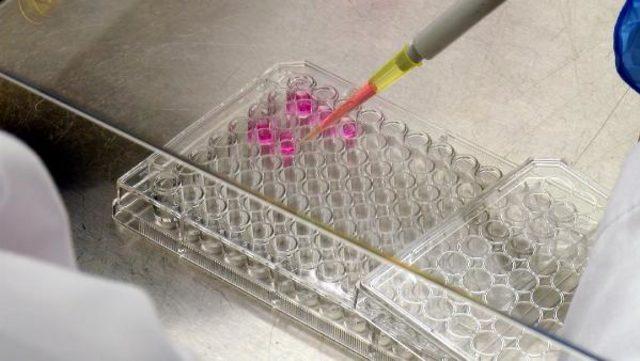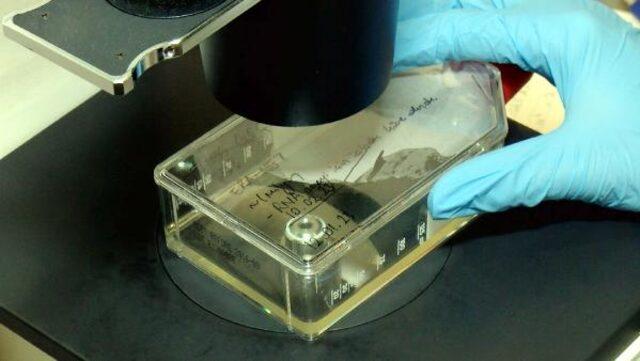On April 1-7, National Cancer Week, the good news of a new study that takes the effectiveness of existing cancer treatments one step further came from Marmara University (MU) Genetic and Metabolic Diseases Research and Application Center (GEMHAM). In the study, which was initiated at the center and carried out in cooperation with surgeons, oncologists and pathologists working in the field of cancer, it is aimed to select the drug or method that will have the highest effect in the treatment of “solid) tumors such as breast, lung and colon cancer. Accordingly, the sample taken from the patient’s surrounding tissue, including tumor and immune cells, is quickly delivered to the laboratory; here, the data obtained by tailor-made comprehensive genetic sequencing is analyzed using bioinformatics methods; Treatment methods that can be used are tested ‘on the patient’s own cells’ in a laboratory environment before they are administered to the patient. Thus, the response or side effects to the treatment are determined at the cellular level, and it is possible to prevent the patient from wasting time by taking treatments that will not benefit. Even if it is smart medicine or immunotherapy, if the patient will not benefit from that method, that treatment protocol is not preferred. Prof. from Marmara University (MÜ) Bioengineering Department, who carried out the study. Dr. Kazım Yalçın Arga and Marmara University (MU) Faculty of Medicine Department of Basic Medical Sciences Faculty Member and GEMHAM Director Prof. Dr. Betül Yılmaz told the details of the new cancer treatment approach to Demirören News Agency.
“IT WILL INCREASE THE SUCCESS OF EXISTING TREATMENTS”
prof. Dr. Kazım Yalçın Arga noted that with this study, they added another dimension to personalized cancer treatment, and gave the following information: “What we do first is to determine the molecular characteristics of the patient by sequencing the blood and tumor tissues obtained from the patient together. In this way, we determine the drug targets that we will use in the treatment specifically for the patient. Sequencing the patient’s own blood and tumor together is very important at this point. It brings an advantage in terms of setting the right targets. The most innovative aspect of this study is that it allows treatment targets to be ‘worked on the patient’s own tissues (with organoid models) in the laboratory at the cell culture stage). This gives us a great deal of information about the success of the treatment, without the need for any animal experiments, but without going to the clinical stage.”
THEY SIMPLE THE THERAPY RESPONSE IN THE BODY IN THE LABORATORY
Noting that in personalized cancer treatments used today, cancer models that do not belong to the patient but used in laboratories are used, and that this can change the result when the patient is given that treatment, with the effect of the patient’s own immune and genetic response. Dr. Arga said, “Since we analyze the organoid together with the patient’s own tumor cells, healthy cells and immune system cells, the treatment response we receive in a drug trial can be much closer to the response in the patient’s body. Therefore, we achieve very successful results compared to traditional methods. Genomic profiling of the patient gives us the most appropriate drug targets for that patient. The drug therapy strategies we will use here may be in the form of chemotherapy, immunotherapy or new generation smart drugs. “The advantage of this system is that it gives better results in terms of which of these treatment strategies is much more appropriate for this patient.”
“WE ARE WORKING ON THE PATIENT’S FRESH TISSUE”
Emphasizing that they are currently conducting this study in cancers related to solid tumors and that they are carrying out this study in cooperation with physicians working in the field of cancer from many centers, MU Faculty of Medicine Department of Basic Medical Sciences Faculty Member and GEMHAM Director Prof. Dr. Betül Yılmaz, on the other hand, said that they will carry out a similar study in the future for cancers such as leukemia and lymphoma. prof. Dr. Yılmaz said, “The whole process takes place under the supervision of oncologists, surgical branches and pathologists. Because the data from them is very critical for us. Pathology gives us details such as what stage the cancer is and what cancer it is. The oncologist already decides which treatment will be applied, in parallel with us. The importance of surgery for us is this: In order to culture organoids, if possible, the patient’s own tissue, which is what we call organoid, so that we can carry out experiments on it, we need to take fresh tissue. Here, of course, as soon as the surgeon removes the tissue, we have to take it to the laboratory and try it on the determined drugs after removing as many cells as possible from there.”
“SHOULD BE APPLIED TO PATIENTS WITH NEW DIAGNOSIS”
prof. Dr. Yılmaz noted that in the examples received so far, it is generally in end-stage cancer patients who have tried different treatments and have no other option, but that it is necessary to proceed with this system as soon as the patient is diagnosed. “In fact, as soon as a cancer is diagnosed, when a gene is identified here and the right treatment is applied to it, conditions such as drug resistance, non-response to the drug or recurrence of the cancer are reduced to a very minimal level. Therefore, it should be done as soon as cancer is diagnosed. The cases that came to us were usually patients whose treatment options were exhausted and what else could we do. We need to start applying this method from the new diagnosis stage. Thus, we can get rid of the disadvantages such as unnecessary drug use in cancer treatments (there may be drugs that cannot be responded to in the treatment), unnecessary radiation use, waste of time, and negative effects on the psychology of the patient.

“SMART MEDICATION CANNOT WORK FOR EVERY PATIENT”
Stating that some patients did not respond well even to smart drugs, Prof. Dr. Yılmaz concluded his words as follows: “The reason for this is that some genes were omitted in the background. When we verified with the data we obtained from the organoid, we observed 40 percent more activity, very different from the previous result. In our opinion, this test should be done at the very beginning for all cancer patients. Of course, today there is gene testing in cancer treatments. It’s not wrong either, but; not enough. We see that in many patients, immunotherapy can be performed by looking at one or two genes. But this is not enough because in the background, tumor suppressor and tumor enhancing genes (specific to that patient) need to be analyzed together so that the right treatment can be decided. Today, personalized cancer treatments are applied in many centers. But the different point that we stand out with our study is to perform this analysis on ‘fresh tissue’ taken from the patient, if possible, and to determine the treatment protocols over it. The fact that we can analyze bioinformatics data through the software we have developed is a novelty in itself.”
“APPLIED ON 4 PATIENTS”
So far, samples of 4 patients have been included in a 2-year study and the treatment protocol has been adjusted accordingly. It was learned that 3 of 4 patients with brain tumor, lung, colon and stomach cancer responded well to treatment and their treatment processes are still being followed. The patient with advanced brain tumor died. However, one patient with colon cancer, who was included in the protocol earlier, had a full recovery. 80% success was achieved in the treatment of patients with lung and stomach cancer. By the end of the year, it is aimed to regulate the oncology treatment of approximately 100 patients with this protocol. GEMHAM researchers believe that with this protocol, which will increase the effectiveness of all existing traditional or innovative cancer treatments (chemotherapy, radiotherapy, smart medicine or immunotherapy), much better results can be achieved in the treatment of many cancer patients. (DHA)
